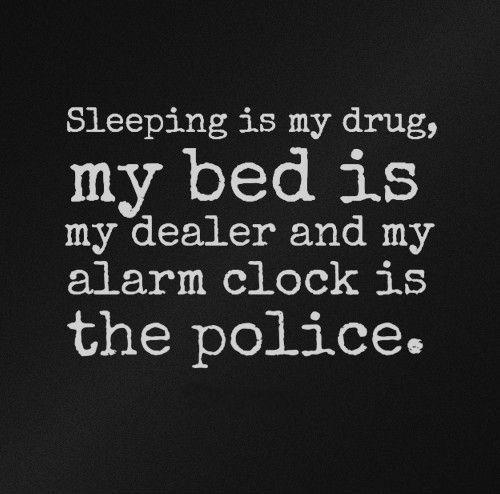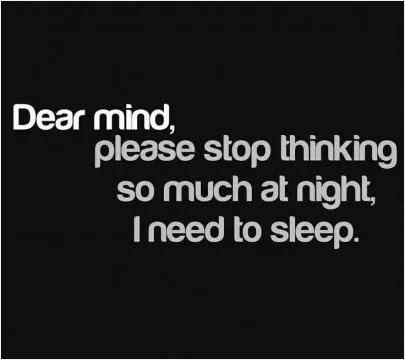Sleeping is my drug, my bed is my dealer, and my alarm clock is the police

Sleeping is my drug, my bed is my dealer, and my alarm clock is the police
Sleeping is my drug, my bed is my dealer, and my alarm clock is the police. These words perfectly encapsulate the love-hate relationship many of us have with our beds and the act of sleeping. For some, the thought of crawling into bed at the end of a long day is a comforting and enticing prospect. The softness of the mattress, the warmth of the blankets, and the promise of rest and relaxation all beckon us to surrender to the embrace of our beds.However, for others, the act of sleeping can be a source of frustration and anxiety. The struggle to fall asleep, the tossing and turning throughout the night, and the dread of waking up to face another day can turn the sanctuary of our beds into a battleground. In this context, the bed becomes a dealer, offering the promise of escape and relief, but also trapping us in a cycle of dependence and longing.
And then there is the alarm clock, the ever-present reminder that our time in bed is limited. Like the police, it enforces the rules and regulations of the waking world, pulling us out of our dreams and back into reality. The shrill sound of the alarm can feel like a harsh wake-up call, disrupting the peace and tranquility of our beds and forcing us to confront the responsibilities and challenges of the day ahead.












 Friendship Quotes
Friendship Quotes Love Quotes
Love Quotes Life Quotes
Life Quotes Funny Quotes
Funny Quotes Motivational Quotes
Motivational Quotes Inspirational Quotes
Inspirational Quotes